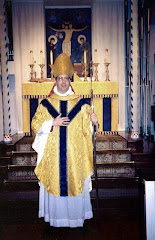
Algerian Christians to Appeal Conviction for Worshiping
By Damaris Kremida
Four Christian men in Algeria will appeal a court decision to hand them suspended prison sentences for worshiping without a permit, saying the verdict could have repercussions for all the country’s churches.
The correctional court of Larbaa Nath Irathen, about 27 kilometers (17 miles) from the capital of Tizi Ouzou Province, gave two-month suspended prison sentences to four Christian leaders of a small Protestant church on Sunday (Dec. 12).
The pastor of the church, Mahmoud Yahou, was also charged with hosting a foreigner without official permission. The court gave him a three-month suspended sentence and a fine of 10,000 Algerian dinars (US$130), reported French TV station France 24 on its Web site. The prosecutor had asked for one-year prison sentences for each defendant.
Although the suspended sentences mean the four Christians will not serve prison time, Yahou said that he and the three other men plan to appeal the verdict because the outcome of their case could affect all Protestant churches of the country, none of which have official permission to operate.
“If they close us, they can close all the gatherings and churches that exist in Algeria,” Yahou said. “They could all be closed.”
In February 2008 the government applied measures to better control non-Muslim groups through Ordinance 06-03, which was established in 2006. Authorities ordered the closure of 26 churches in the Kabylie region, both buildings and house churches, maintaining that they were not registered under the ordinance. No churches have been closed down since then.
Despite efforts to comply with the ordinance, no churches or Christian groups have received governmental approval to operate, and the government has not established administrative means to implement the ordinance, according to the U.S. Department of State’s 2010 Report on International Religious Freedom.
Though none of the churches have closed since 2008, their status continues to remain questionable and only valid through registration with the Protestant Church of Algeria (EPA). The EPA, however, is also trying to gain official recognition.
“Actually, this law of 2006 has come to light: people are condemned as criminals for the simple act of thinking and believing different,” the president of the EPA, Mustapha Krim, said. “If we accept this [verdict], it means we are condemned to close our churches one after the other.”
Krim confirmed that based on Ordinance 06-03, none of the churches have actual authorization to operate, nor can Christians speak about their faith to other Algerians.
“If they condemn our four brothers, they need to condemn the others,” he said.
In a sign of solidarity towards the men and to demand the abolition of Ordinance 06-03, dozens of demonstrators gathered outside the courthouse on the first hearing of the case on Sept. 26. Demonstrators carried banners that read: “Places of worship for everyone,” “Freedom of religion = freedom of conscience,” and “Abolition of the Law of 06-03-2006.”
Attending the re-opening of a Catholic church in Algeria’s capital on Monday (Dec. 13), Religious Affairs Minister Bouabdellah Ghlamallah told reporters, “Religious freedom in Algeria is a reality,” reported Reuters. (ACP editor's note: The Roman Catholic Church has agreed to not proselytize and also to refuse any Muslims who approach the Roman Church seeking to convert.)
The Algerian Constitution gives the right to all citizens to practice their faith, although it declares Islam the state religion and prohibits institutions from behavior incompatible with Islamic morality.
Yahou said the judge did not pass a rightful judgment and thus had no real sense of justice.
“I think he has no conscience,” Yahou said. “We can’t be persecuted for nothing. He didn’t judge on the law and constitution, he judged on Islam. If he had read what is in the constitution, he wouldn’t have made this decision.”
The small church of Larbaa Nath Irathen, consisting only of a few families, had problems as early as 2008, when a group of Islamic radicals launched a petition against the church without success.
Yahou said that he knew very well the people in the village who brought charges against them, saying that they have tried to intimidate the church for the past few months in an effort to close it down.
“These are Islamists, and I know them in this village,” Yahou said.
Tizi Ouzou is part of Kabylie region, an area of Algeria where the country’s Protestant church has grown with relative freedom in recent years.
There are around 64 Protestant churches in the Kabylie region, where most Algerian Christians live, as well as numerous house groups, according to church leaders. The Kabylie region is populated by Berbers, an indigenous people of North Africa.
In October a court in the region acquitted two Christian men of eating during Ramadan in spite of a prosecutor’s demand that they be punished for “insulting Islam.”
In January Muslim neighbors ransacked and set on fire a church in Tizi Ouzou. In September a court in Tizi Ouzou ordered a local church to stop construction on an extension to its building and to tear it down.
Unofficial estimates of the number of Christian and Jewish citizens vary between 12,000 and 50,000, according to the state department’s report.


























No comments:
Post a Comment